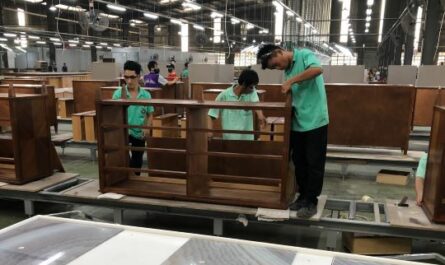For many, learning about safety issues involving these products could be the first step on how to avoid them yourself
WASHINGTON, D.C. — The number of 0verall furniture and bedding recalls fell in 2021 from 2020 but there were more items recalled during that 12-month period based on a review of United States Consumer Product Safety Commission data.
In 2021 there were 30 recall announcements affecting the home furnishings and bedding category with nearly 1.497 million pieces recalled compared to 33 recalls the year before, which resulted in 1.27 million pieces recalled.
The items ranged from accent furniture recalled due to shock hazards involving charging stations, to mattresses violating flammability standards and clothing storage units posing tip-over hazards.
The list of recalls in 2021 would have been even higher this year if you included the February recall of 2.2 million utility shelving units typically used in garages. Similar in construction to bookcases, these shelving units were recalled due to stability issues that also could impact bookcases as the weight of the items could cause them to tip over or collapse.
So was 2021 a worse year in terms of recalls? That depends on how you interpret the numbers.
On one hand, observers might say that while not good, a higher number of recalls actually gets more potentially dangerous product out of peoples’ homes. A lower number could be interpreted as meaning that some unsafe products are being overlooked.
One of the biggest areas of concern relates to tip-overs involving clothing storage units. Both years, tip-over-related incidents led to some of the highest number of recalls in home furnishings. A big reason involving many, although not all of the units recalled, was that they failed to meet the basic testing requirements of ASTM F-2057, the voluntary safety standard for clothing storage units.
As the case goods segment knows, tip-over will continue to be major issue this year as a CPSC Notice of Proposed Rulemaking has created a complex testing protocol for all clothing storage units that could be even more difficult for the industry to meet than the current voluntary standard.
“Based on a preliminary review of the rule by the American Home Furnishings Alliance (AHFA), a majority of clothing storage furniture currently on the market today would not be able to meet the minimum stability requirements outlined in the rule,” the AHFA said in late July shortly after the proposed rulemaking notice came out.
Regardless, the AHFA, which has reviewed the nearly 1,200-page NPR and helped perform trial evaluations of the testing methods, has supported the rulemaking process as it requires the CPSC to receive and respond to public comments. Proposed legislation such as the STURDY Act (Stop Tip-Overs of Unstable, Risky Dressers on Youth), it notes, “requires no such review. If passed, it would allow CPSC to implement the provisions of the NPR with no input from industry and no OMB (Office of Management and Budget) review.”
Thus, tip-over testing has been and continues to be a major issue moving forward relating to the safety of clothing storage units. The message to the industry is that those that fail to comply with the testing standards will undoubtedly be the subject of further recalls.
The good news is that many of these recalls are happening more quickly than not through a process known as Fast Track, which helps alert the public to the dangers involving certain products sooner versus later. For this reason, almost all recalls — including tip-over related recalls — were caught before they caused any major injuries or worse.
Most of the injuries associated with recalls this year were due to fall hazards from various chairs. In one of those recalls, Cheyenne Products recalled 795,000 folding chairs and barstools associated with 19 injuries. In another, retailer TJX recalled 4,300 counter stools associated with 17 injuries. The same retailer recalled 82,500 outdoor folding wooden chairs due to a fall hazard that resulted in 15 minor injuries
Other products such as ottomans with sharp metal borders and fragile glass knobs used in cabinetry also resulted in several lacerations, thus receiving complaints from consumers. These too resulted in recalls.
Other recalls reported no incidents as they were tied to products that didn’t meet certain safety standards.
For example, there were three recalls involving area rugs that did not meet a federal flammability standard and two mattresses that also did not meet a federal flammability standard. Another recall involved a chair that failed to meet a lead paint standard.
Supplier Jimco Lamp & Manufacturing Co. recalled 110,000 accent tables with charging units that posed an electrical shock hazard, although no injuries or incidents were reported at the time of the recall.
This all begs the question — Do recalls matter and should we report them? I once asked that question to a source who without pause said, absolutely. Reading about product recalls, the source noted, helped them know what problems to avoid and what issues they need to address in sourcing product.
Consider one of the worst recall announcements this year involving supplier Longwood Forest Products. Its recall was associated with the death of a two-year old in 2018 who was entrapped between the between the ladder and frame of a bunk bed.
Would you want a product on your floor that posed such a hazard? Or do you just ignore the issue and hope for the best? It’s a question many should be asking whether the issue involves lead paint, flammability, tip-over or child entrapment.
The message is — don’t wait to ask important questions before seeing a headline involving another tragedy. Your company’s name might end up in that story, not necessarily as the manufacturer of that product, but perhaps one of the places where it was sold.




